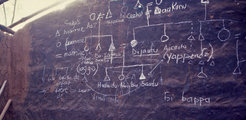Between Disintegration and Integration: Fulbe refugees from the Central African Republic in Cameroon

This research project deals with Fulbe people who have fled violence from bandits and rebel groups in the Central African Republic and relocated to Cameroon from 2003 onwards. Martine Guichard is particularly interested in the strategies based on changes in social networks that these refugees use in order to maximize their success in gaining a livelihood in Cameroon. Such network strategies may involve more engagement in clientelistic arrangements with people of higher socio-economic status and an increasing participation in religious congregations. They may also include the development of new friendships and the forging of new kinship ties with members of host communities. Each of these network strategies can be seen as providing a particular form of integration into local communities, and alternative forms of integration may lead to access to different resources (land, jobs, etc.) needed for livelihood. The network strategies followed to maximize access to different resources may be combined with one another and lead to renegotiation of certain aspects of identity.
All these network strategies will be empirically explored in this research project. But special attention will be given to networks of kinship and friendship. The significance of these webs of relationships as sources of support has not been seriously discussed in the literature on refugees in Africa. By examining more systematically both kinship and friendship practices in a situation of forced migration, this project aims to fill this gap in the practical literature.
In order to assess the specific impact of forced migration on the way people do kinship, the project will also examine kinship practices among a comparable group of Fulbe who have not been displaced. This may enable Guichard to fill a gap in the theoretical literature as well – one having to do with the social implications of ‘relinking’ marriages between relatives. Since marriages of this kind are frequent among the Fulbe, she hopes to use the KNQ2 software to test the hypothesis that ‘relinking’ marriages reinforce kin cohesion and solidarity – a claim which is often made in the anthropological literature but which still lacks empirical confirmation.
